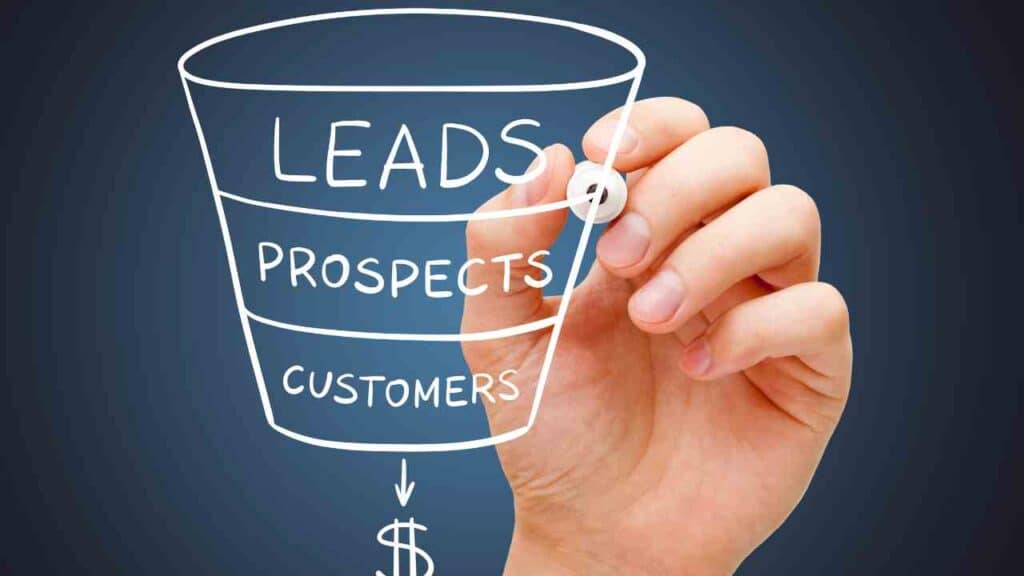Leveraging Third-Party Resources with CRM

Get Your FREE 14-Day Trial and Take Your Business To The Next Level with an All-In-One Sales and Marketing Platform for businesses, agencies and marketers.
Customer Relationship Management (CRM) systems have become an essential tool for businesses of all sizes. They help companies manage their interactions with customers, streamline sales processes, and improve overall customer satisfaction. However, to truly maximize the benefits of CRM, businesses should consider leveraging third-party resources. These resources can enhance the functionality of CRM systems, provide valuable insights, and help businesses achieve their sales and marketing goals. In this article, we will explore the various ways in which businesses can leverage third-party resources with CRM.
1. Integration with Marketing Automation Tools
One of the key benefits of CRM is its ability to track and manage customer interactions. However, to effectively nurture leads and convert them into customers, businesses need to implement marketing automation strategies. By integrating CRM with marketing automation tools, businesses can automate their marketing campaigns, personalize communication, and track the effectiveness of their marketing efforts.
For example, a business can integrate their CRM system with an email marketing tool to send targeted and personalized emails to their leads and customers. The CRM system can provide valuable data such as customer preferences, purchase history, and engagement levels, which can be used to segment the email list and send relevant content to each segment. This integration can significantly improve the effectiveness of email marketing campaigns and increase customer engagement.
2. Data Enrichment Services
CRM systems rely on accurate and up-to-date customer data to provide meaningful insights and drive informed decision-making. However, maintaining a clean and comprehensive customer database can be a challenging task for businesses. This is where data enrichment services come into play.
Data enrichment services help businesses enhance their existing customer data by appending additional information such as demographic data, firmographic data, social media profiles, and more. This enriched data can provide businesses with a deeper understanding of their customers, enabling them to personalize their marketing efforts, identify new sales opportunities, and improve customer segmentation.
For example, a CRM system integrated with a data enrichment service can automatically update customer records with the latest contact information, social media profiles, and job titles. This ensures that businesses have accurate and complete customer data, which can lead to more effective sales and marketing strategies.
3. Integration with Customer Support Tools
Providing excellent customer support is crucial for businesses to retain customers and build long-term relationships. By integrating CRM with customer support tools, businesses can streamline their support processes, improve response times, and enhance customer satisfaction.
For instance, a business can integrate their CRM system with a help desk software to centralize customer support tickets and track customer interactions. This integration allows support agents to access customer information directly from the CRM system, enabling them to provide personalized and efficient support. Additionally, the CRM system can track customer support history, enabling businesses to identify recurring issues and proactively address them.
4. Social Media Integration
Social media has become an integral part of the customer journey, with customers using platforms like Facebook, Twitter, and Instagram to research products, seek recommendations, and engage with brands. By integrating CRM with social media platforms, businesses can gain valuable insights into customer behavior, engage with customers in real-time, and provide personalized social media experiences.
For example, a CRM system integrated with social media platforms can track customer interactions on social media, such as comments, likes, and shares. This data can be used to identify brand advocates, monitor customer sentiment, and engage with customers in a timely manner. Additionally, businesses can use social media data to segment their audience and deliver targeted social media campaigns.
5. Analytics and Reporting
CRM systems provide businesses with a wealth of data about their customers, sales processes, and marketing efforts. However, to make sense of this data and derive actionable insights, businesses need robust analytics and reporting capabilities. By leveraging third-party analytics tools, businesses can unlock the full potential of their CRM data.
For instance, a business can integrate their CRM system with a business intelligence tool to create custom dashboards and reports. These dashboards can provide real-time insights into key performance indicators (KPIs), such as sales revenue, customer acquisition costs, and customer lifetime value. By visualizing this data, businesses can identify trends, spot opportunities, and make data-driven decisions.
Get Your FREE 14-Day Trial and Take Your Business To The Next Level with an All-In-One Sales and Marketing Platform for businesses, agencies and marketers.
Leveraging third-party resources with CRM can significantly enhance the functionality and effectiveness of CRM systems. Integrating CRM with marketing automation tools enables businesses to automate their marketing campaigns and personalize communication. Data enrichment services help businesses maintain accurate and comprehensive customer data, leading to more effective sales and marketing strategies. Integration with customer support tools streamlines support processes and improves customer satisfaction. Social media integration allows businesses to gain valuable insights into customer behavior and engage with customers in real-time. Finally, leveraging analytics and reporting tools helps businesses make sense of CRM data and derive actionable insights.
By leveraging these third-party resources, businesses can unlock the full potential of their CRM systems and achieve their sales and marketing goals more effectively. To explore how you can leverage third-party resources with CRM, visit https://SaasExpert.ca – Your All-In-One Sales and Marketing Platform for small businesses, agency owners, and marketers.
Check out “Merging Third-Party Resources with CRM” right here.
Frequently asked questions about Leveraging Third-Party Resources with CRM.

1️⃣ Why is leveraging third-party resources beneficial for my CRM system?
Ah, the quintessential question! 💡 Leveraging third-party resources is like inviting specialized experts to be a part of your team. Maybe your CRM is great at managing customer relationships, but could it also benefit from an advanced analytics engine? Or perhaps a high-powered marketing automation tool? By bringing these specialized third-party tools into your CRM, you amplify its capabilities. You’ll be able to perform more functions, gather more data, and automate more tasks, all while offering a richer experience to your customers.
2️⃣ How do I choose the right third-party resources to integrate with my CRM?
The ‘right’ third-party resource is the one that fills a gap in your CRM capabilities or makes a current function more efficient. 🎯 First off, make a list of areas where your CRM could improve. Is it in data analytics, customer communications, or perhaps inventory management? Then look for third-party tools that excel in those areas. Read reviews, ask for recommendations, and definitely take advantage of any free trials. This will allow you to test out the integration before committing.
3️⃣ Are there any risks involved when leveraging third-party resources?
Good on you for considering the potential drawbacks! 🛡️ The main risks usually involve compatibility, data security, and additional costs. Compatibility issues can lead to data loss or software malfunctions. To mitigate this, always ensure that the third-party resource is fully compatible with your CRM software.
When it comes to data security, choose third-party resources that are compliant with legal and industry standards. Check their security protocols and certifications. Lastly, while integrating third-party resources adds value, it also adds costs. So, make sure the benefits outweigh the financial investment.
4️⃣ Will leveraging third-party resources complicate my CRM setup?
It’s natural to worry that more features could mean a more complex system. 🤔 However, many third-party resources are designed to integrate seamlessly with CRM systems, so the learning curve is often minimal. The key is to introduce any new features gradually and provide adequate training to your team. This way, you maximize the utility of the third-party resource without overwhelming your staff.
5️⃣ Can leveraging third-party resources affect customer experience?
Absolutely, but in a good way! 😊 When done correctly, integrating third-party resources can vastly improve the customer experience. For instance, if you leverage a third-party customer support tool with AI capabilities, your customers can get instant answers to their questions, improving satisfaction and loyalty. The trick is to choose third-party resources that align with your brand’s values and enhance your customer’s journey through more personalized and efficient interactions.






